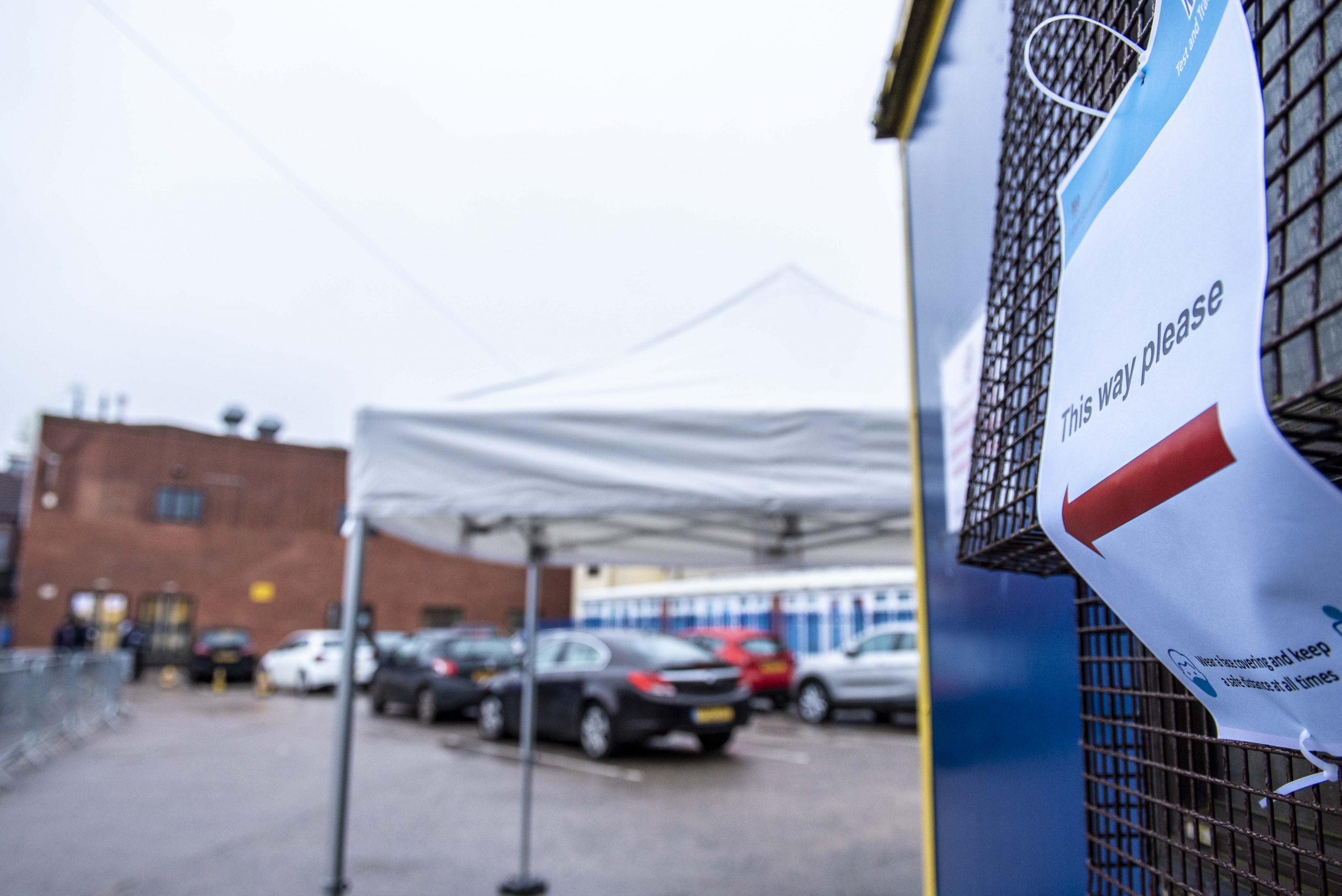A community-led pilot programme to check whether people without symptoms of Covid-19 have the virus or not is continuing this week – and as of last night, (Monday 23 November), 872 people have taken part.
People aged 18 and over without symptoms of Covid-19 are invited to attend the pilot, which is taking place at Guru Nanak Sikh Gurdwara, Sedgley Street, for a test between 7am and 7pm, seven days a week, until Monday (30 November). The pilot uses the fast-turnaround lateral flow test kits, which can deliver results in less than an hour.
Please note, only people without Covid-19 symptoms should take part in this pilot. Anyone with symptoms of Covid-19 – a fever, a new continuous cough or a change to their sense of taste or smell – must self-isolate and book a test via www.gov.uk.get-coronavirus-test or by calling 119 as usual. Their test will take place at one of the seven regular Covid-19 test centres in Wolverhampton.
The asymptomatic test pilot, which began last week, is being led by the local community, with over 25 local volunteers offering their time to support the process. The City of Wolverhampton Council is providing support and oversight at the testing site in partnership with the Department of Health and Social Care.
Councillor Jasbir Jaspal, Cabinet Member for Public Health and Wellbeing, said: “It’s great that so many people have already taken part in the pilot programme running at the Guru Nanak Sikh Gurdwara, Sedgley Street, and I’d like to thank them for being involved.
“People ask, why is asymptomatic testing important? Well, very simply it enables us to find cases of Covid-19 among people who haven’t shown any symptoms and so don’t know they’ve got it. This means they may be inadvertently spreading the virus to other people – including friends, loved ones and work colleagues.
“We know that the ‘R’ rate, the reproduction rate, is just above one, so each asymptomatic case we are able to find will potentially prevent at least one other person being infected.
“By breaking the chain of transmission we’ll reduce the spread of the virus and, already, a small number of people who have tested positive through the asymptomatic testing pilot are now self-isolating to protect others.”
She added: “The pilot is really important in not only enabling us to identify cases of Covid-19 which we wouldn’t otherwise know about, but also in trying out new technologies in preparation for the roll out of mass testing across the country. This, combined with the various Covid-19 vaccines currently in development, is crucial if we are to end this pandemic.”
Latest data shows there were 337.96 cases of Covid-19 per 100,000 people in Wolverhampton over the seven days to 21 November. That means 889 people in the city tested positive for the virus in that seven day period – though the true number of new cases will likely be considerably higher.
The latest information and guidance around coronavirus is available at www.gov.uk/coronavirus and on the council’s own coronavirus pages at www.wolverhampton.gov.uk/coronavirus. Details of the national lockdown measures in effect until 2 December, and the answers to frequently asked questions, are available at www.wolverhampton.gov.uk/covidalert.
